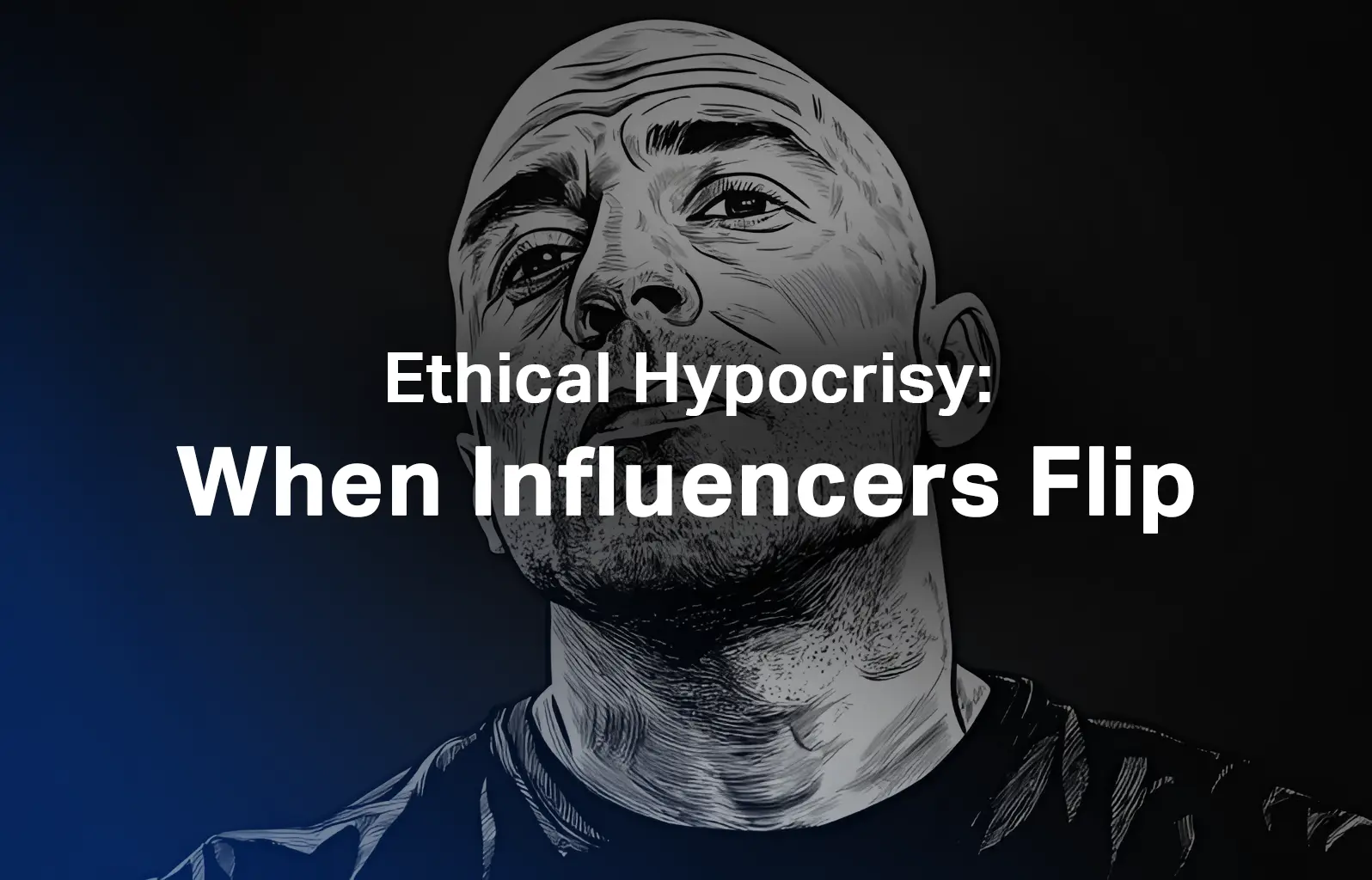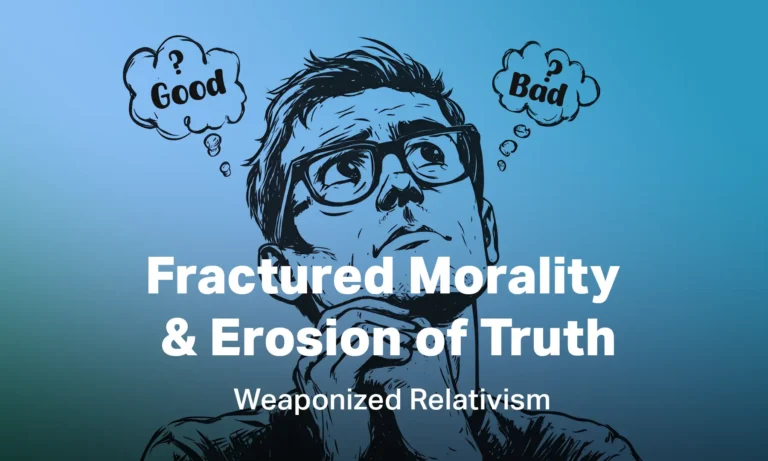Ethical Hypocrisy: When Influencers Flip
How many times have you seen someone preaching one thing and doing the opposite? Pretty often, right? I mean – no one is perfect, and it’s one of the common human flaws. It’s called ethical hypocrisy.
Ethical hypocrisy is when someone claims to stick to certain moral principles or standards, but their actions or words show they don’t really live by them. It’s like a health guru pumping PEDs behind the scenes, or a Greenpeace activist flying private jets and keeping endangered species as pets at home.
While we all are guilty of ethical hypocrisy to a certain degree, it takes an ugly form when people with real influence do it.
Ethical Hypocrisy in the Influencer Age
When people with massive online followings – the super-popular influencers of the world – constantly engage in acts of ethical hypocrisy, the negative ripple effects can be huge. These days, the reach influencers have often surpasses that of major news outlets or elected politicians, public speakers, etc.
How do they get so popular and powerful? These folks build trust and capture everyone’s attention through their authenticity and seemingly positive messages, as well through their bold opinions on all sorts of topics: from social and political issues to health, history, and even UFOs. Millions of viewers and listeners hang on to their every word and take it to heart.
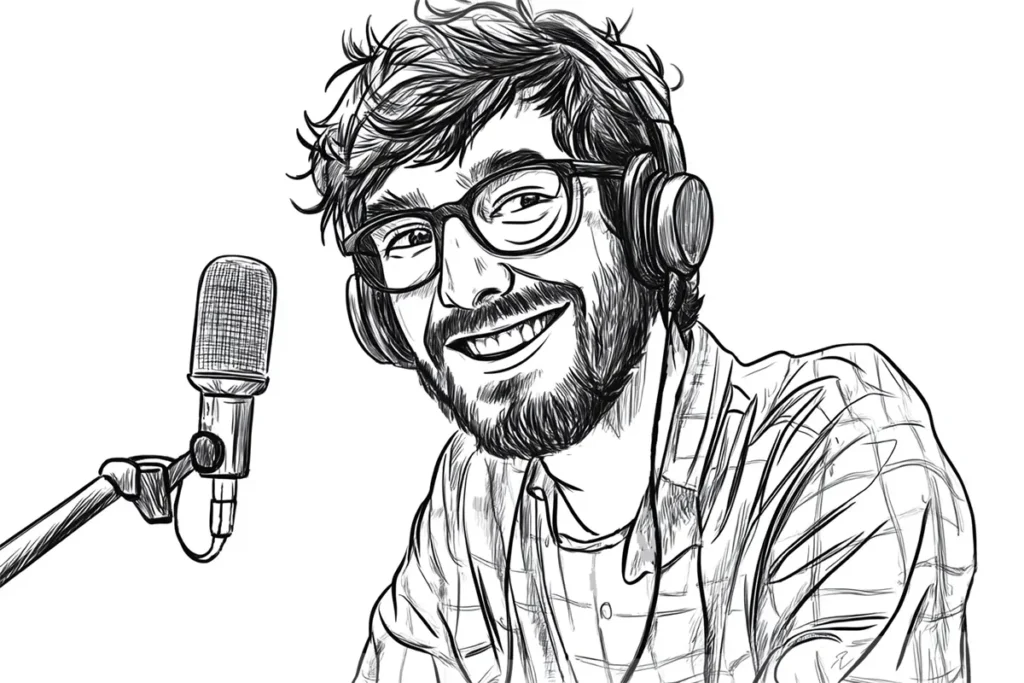
The problem starts when these influencers do things that contradict what they preach. When the positive message they put out turns out to be fake. Even worse, when they start using their influence not for good, but to push harmful agendas. It doesn’t even matter whether they do it intentionally, or out of ignorance — people still follow them regardless, often without question.
When influencers declare (with the same seemingly authentic and genuine demeanor) that a certain political side is wrong and full of BS, their multi-million audience believes them. When they say a certain vitamin or medicine is good for you, people trust that too. Meanwhile, these influencers might not even believe what they’re saying. They could be doing it all just for clout, sponsor money, personal gain, future favors, more influence — and a bunch of other selfish reasons.
That’s when Uncle Ben’s famous line flips into: “With great power comes zero responsibility.” Because the moment these influencers get exposed, they usually hide behind the excuse of Relativism. They simply claim it was “just their opinion” or “an alternative point of view.” Free speech and everything… right?
“Free Speech” but Not Really
As soon as people with massive online presence are confronted about the things they say and do, they usually justify everything by saying they’re simply exercising their right to free speech.
And while — yes — everybody has the right to free speech, and it’s up to the audience to decide whether they agree with something or not, the reality is: we live in a world where there are practically NO moral or ethical checks. So there’s nothing and no one to ensure that the balance between right and wrong is preserved.
Free speech isn’t just being used — it’s being abused. This isn’t a knock on the concept of free expression itself. It’s just stating the facts. The internet has become the perfect space for spreading “alternative truths” under the guise of free speech. And because everyone has access to all this information 24/7, these “alternative ideas” are readily available to hundreds of millions of minds.
So, it’s not surprising that people figured out how to use that to their advantage. Naturally, certain charismatic individuals attracted massive followings. That’s how podcasts became the biggest thing in the media sphere.
The problem is, in recent years, we’ve witnessed how some of the biggest voices have turned into a cesspool of propaganda and misinformation.
What started as a great example of practicing “Free Speech” turned into “Free agenda pushing.” Influencers who once captured our attention and earned our trust have become radicalized to the bone.
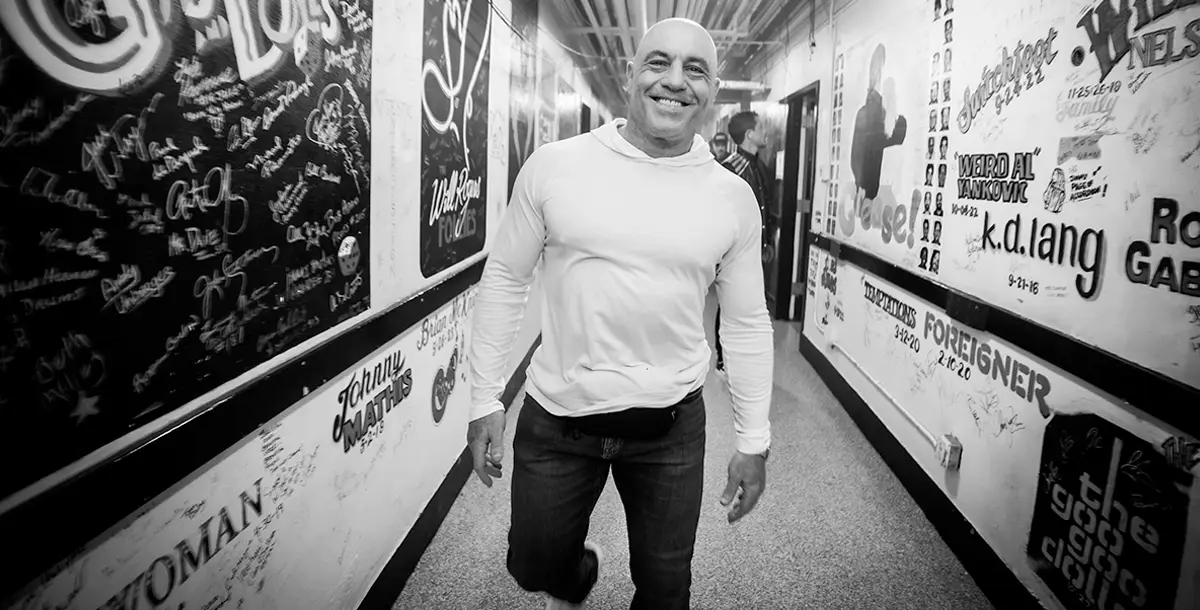
Take Joe Rogan as a prime example. The man used to be everyone’s favorite fella. Not because he favored any particular political side over the other, but because he was reasonable and grounded. He seemed genuinely interested in nuance, exploring new ideas, and uncovering the truth. But nowadays, he’s super politicized and serves one camp only.
Which brings me to the next point.
The Selective Microphone
People with enormous media followings, like Mr. Rogan, have tons of influence. With that should come additional responsibility, right? But it doesn’t — at least not for Joe. After he flipped and joined the far right-wing camp, he started choosing guests who supported and spoke to narratives that fit the right side only (and not even the moderate part of right-wing).
By the way, I focus on Joe Rogan simply because he is the most famous, and most watched podcaster in the world. Pretty much everybody knows him. So his example is the easiest to study.
Joe’s choice of podcast guests at times not only surprised me — they actually baffled me. Surely he understands that he’s actively platforming and amplifying voices that align only with the views of his preferred party and influential individuals. So it can’t be just a coincidence.
Not only did he avoid inviting guests with alternative viewpoints, but he also started discrediting those views altogether. Just watch the episodes where he comments on the war in Ukraine. He repeatedly echoed Russian narratives, criticized the Ukrainian government, and questioned the aid provided to a sovereign country that was attacked by Putin’s Russia.
Forget the political knowledge and awareness he might lack. Forget about Joe not knowing the history of that Eastern European region. Let’s even assume he’s not fully aware of what kind of aid has been approved by Congress and provided to Ukraine. Just look at this horrible situation from a purely human perspective. On a basic level, it has to evoke at least some empathy and compassion, right?
You don’t have to be a specialist in all those nuances to feel empathy for the side that’s been mercilessly invaded, constantly bombarded — where millions of people have lost their homes and been forced to flee the country as refugees. As a normal human being, you must feel that what happened is wrong, immoral, and needs to be stopped! Then why haven’t we seen this from Joe?
He still hasn’t had guests who represent Ukraine’s side. I remember seeing online that Wladimir Klitschko, the former heavyweight boxing world champion, expressed willingness to come on The Joe Rogan Experience. Not to promote himself or sell a product — just to have a conversation about what’s really going on in Ukraine (since he still lives there despite the war).
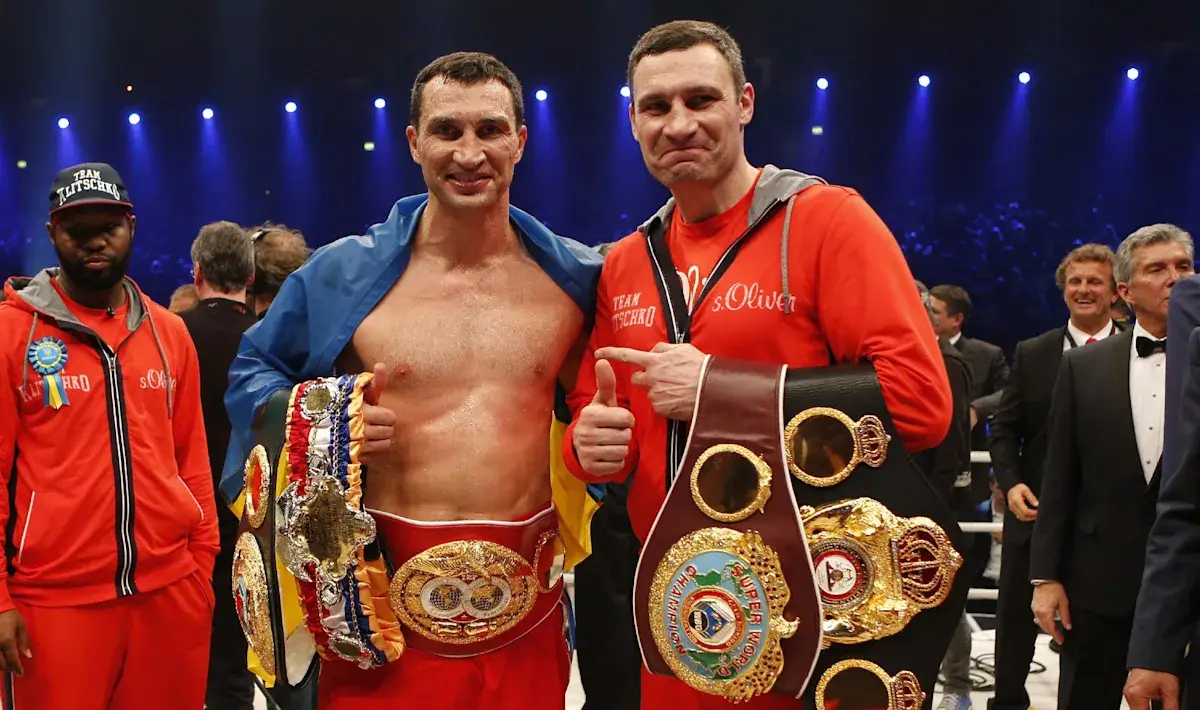
It certainly looks like Wladimir would be the perfect guest the “old” Joe Rogan would’ve been thrilled to have on his show. I mean, we’re talking about a super successful athlete — often considered one of the greatest heavyweight champions of all time, also a popular social speaker with plenty of interesting stories, and someone with first-hand knowledge of recent events in a war-torn country. But Joe never followed up with that invitation… 😳
It’s pretty clear that Joe’s version of free speech has turned into a selective microphone, where he sticks to one side only and promotes speakers who share the same views. What happened to the “Question Everything” motto he used to stand by?
The “Question Everything” Trick
If you’ve followed Rogan’s podcast long enough, you know he used to have an open-minded approach and encouraged others to question established beliefs. And overall, that’s a positive attitude. How else would we break through stagnant views and discover new truths? Critical thinking and healthy skepticism are absolutely necessary if we want to progress.
But after years of promoting these values, it seems that Rogan has started applying them very selectively. When it comes to his own biases and favored narratives, it’s all about “question everything.” But if something doesn’t align with his views, it’s suddenly not worth checking — or worse, Joe might just laugh at it.
That’s a clear example of ethical hypocrisy right there. And honestly, it’s quite unfortunate. I was a fan of Joe myself. I enjoyed his work as a podcaster. I was excited to hear guests from different fields of science, social, and cultural circles. I didn’t always agree with Joe or share his opinions, but I respected the fact that he maintained a healthy balance of perspectives. And most of them came from a place of solid moral grounding.
Nowadays, though, many of his actions and statements can’t be described as anything but agenda-driven — and they reek of a lack of morality.
The Impact of Widespread Ethical Hypocrisy
The negative consequences of this ethical inconsistency are easy to overlook, but they are quite serious and far-reaching. By giving a platform to individuals who spread misleading or false information, especially on critical topics like history, ethics, or social institutions, these podcasts contribute to the erosion of trust in our way of life, in mainstream science, in fact-based historical events, and in expert consensus.
When “questioning everything” is selectively applied to undermine established facts while promoting unsubstantiated claims, it distorts genuine critical thinking. Instead of encouraging informed skepticism, it can lead to a default distrust of expertise and an embrace of conspiracy theories.
And I’m not talking about harmless speculations – like discussing Bigfoot sightings over a beer with friends. I mean topics that rationalize real historical atrocities (like Nazi war crimes during WW2) or fundamentally undermine our societal understanding of right and wrong.
Conclusion
When big influencers and public figures preach one thing and then act the opposite, the damage goes way beyond just their own credibility. Millions who are watching and listening start questioning everything — not in the healthy, curious way, but in a cynical, disillusioned one. People start questioning even the basic principles of morality. Evil deeds become trivialized.
Ethical hypocrisy can encourage misinformation, and push people toward extreme views. Instead of using their platform to promote clarity and truth, these influencers end up spreading division. And it’s very difficult to oppose their influence in today’s world.

